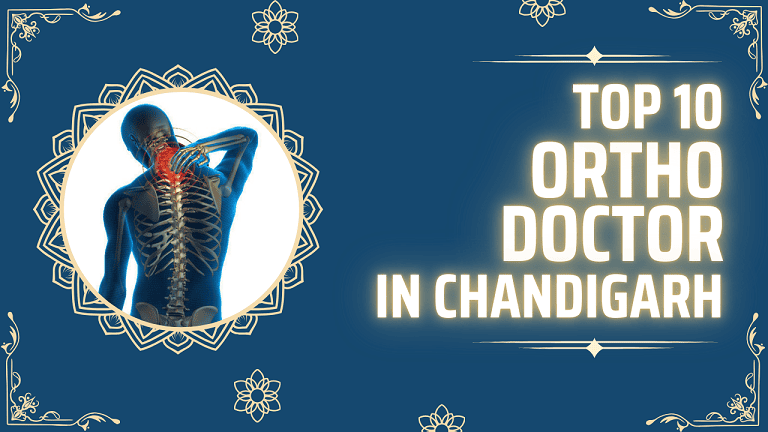Top 10 Ortho Doctor in Chandigarh
FAQ
What is the process of becoming an orthopaedic doctor?
Becoming an orthopaedic surgeon requires extensive education and training. The process involves completing a bachelor’s degree, followed by medical school.
After graduating, aspiring orthopedists must complete a residency in orthopedic surgery, typically lasting five years. Some may pursue additional fellowship training in sub-specialties. The journey demands academic excellence, dedication, and hands-on surgical experience.
What is an ortho doctor called?
An ortho doctor is formally known as an orthopedic surgeon or orthopedist. These medical specialists treat injuries and diseases affecting the musculoskeletal system, including bones, muscles, joints, and soft tissues.
While they are trained surgeons, orthopedists often provide non-surgical treatments, offering a range of therapies to help patients find relief from various conditions.
Can I become an orthopedic doctor without an MBBS?
In most countries, including India, an MBBS (Bachelor of Medicine, Bachelor of Surgery) degree is mandatory to become an orthopedic doctor. The MBBS program typically involves a 4-year full-time course and a one-year residency. After completing MBBS and clearing required entrance exams like NEET PG, you can pursue further specialization in orthopedics through postgraduate studies.
Is orthopedic a MBBS doctor?
An orthopedic doctor is an MBBS doctor with an additional specialization. The journey begins with completing higher secondary education in science, qualifying for NEET, and earning an MBBS degree. Following MBBS, doctors gain practical experience through a residency program and specialize in orthopedics through postgraduate studies, typically an MS (Master of Surgery.
What is the basic knowledge of orthopedics?
Orthopedics is a medical branch focusing on the musculoskeletal system, including bones, muscles, tendons, joints, and ligaments. It encompasses surgical and non-surgical approaches to treat conditions such as back problems, joint pains, and sports injuries.
Orthopedic knowledge involves understanding anatomy, biomechanics, pathology of the musculoskeletal system, and diagnostic and treatment techniques.
Which doctor is best for bones?
An orthopedic doctor, also known as an orthopedist, is the best specialist for bone-related issues. They are trained to diagnose and treat problems affecting bones, joints, muscles, and ligaments.
Orthopedic doctors handle conditions resulting from injuries or diseases, providing surgical and non-surgical treatments to improve patients’ musculoskeletal health and quality of life.
What is done in orthopedics?
Orthopedics is a medical speciality focused on treating the musculoskeletal system. Orthopaedic surgeons diagnose and treat various conditions affecting bones, muscles, joints, ligaments, tendons, and nerves.
Their work includes performing surgeries, prescribing medications, recommending physical therapy, and providing non-surgical treatments for various musculoskeletal issues, from fractures to arthritis and sports injuries.
What is an ortho doctor called?
An ortho doctor is formally known as an orthopedic surgeon or orthopedist. These medical specialists focus on diagnosing and treating conditions affecting the musculoskeletal system, including bones, muscles, joints, and soft tissues.
While trained in surgical procedures, orthopedists often provide non-surgical treatments, offering a comprehensive approach to musculoskeletal health.
Is general anesthesia used for orthopedic surgery?
General anesthesia is commonly used for major orthopedic surgeries. It involves a combination of sedatives and analgesics to induce an unconscious state, allowing patients to undergo procedures without pain or awareness. This type of anesthesia is often referred to as “going to sleep” for a procedure and is administered by trained anesthesiologists to ensure patient safety.
How many times is it safe to go under anesthesia?
While anesthesia is generally considered safe, each administration carries a small risk of side effects or complications. There’s no limit on how often a person can safely undergo anesthesia.
However, repeated exposure may increase cumulative risks. The safety of multiple anesthesia administrations depends on individual health factors, the type of procedure, and the medical team’s expertise.

